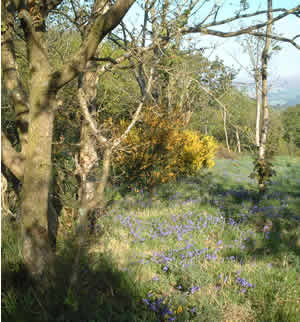The other day I came across the Dutch word oog [oːx], which means ‘spot; hole; period (of time); eye’ – I was looking for the equivalent of eye when I found it. Words like this with double o just appeal to me for some reason and I have to keep reminding myself that they the oo is not pronounced /uː/, as you might expect in English.
Other words in Dutch with double o include:
– ook = too, also, likewise, which always reminds me of how the librarian speaks in Terry Practhett’s Discworld stories (oook, eeek!)
– ooftboom = fruit tree
– ooi = ewe
– oom = uncle
– oor = handle; ear
– oord = place; spot
– oost = east
Eye-related words and expressions include:
– ogen = to look
– oogappel = eyeball (‘eye apple’)
– oogarts = ophtalmologist; oculist (‘eye doctor’)
– oog in oog = face to face (‘eye in eye’)
– in het oog krijgen = to perceive, to descry (‘to get in the eye’)
– in het oog springen = to catch the eye, to stand out (‘to spring/jump in the eye’)
– in het oog vallend = striking (‘falling in the eye’)
– met het oog op = considering (‘with the eye up/on’)
– uit het oog verliezen = to lose out of sight (‘to lose out of the eye’)
Source: bab.la Dictionary
